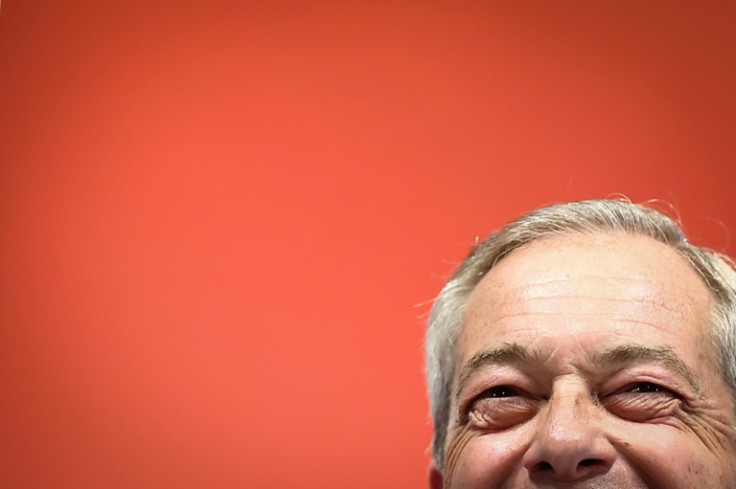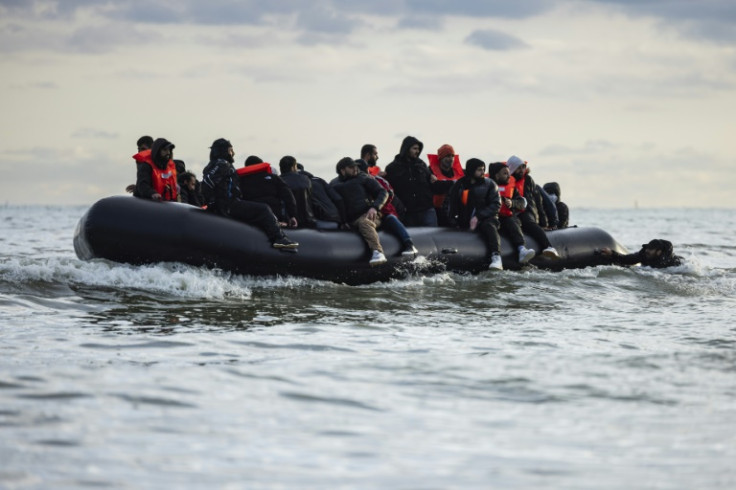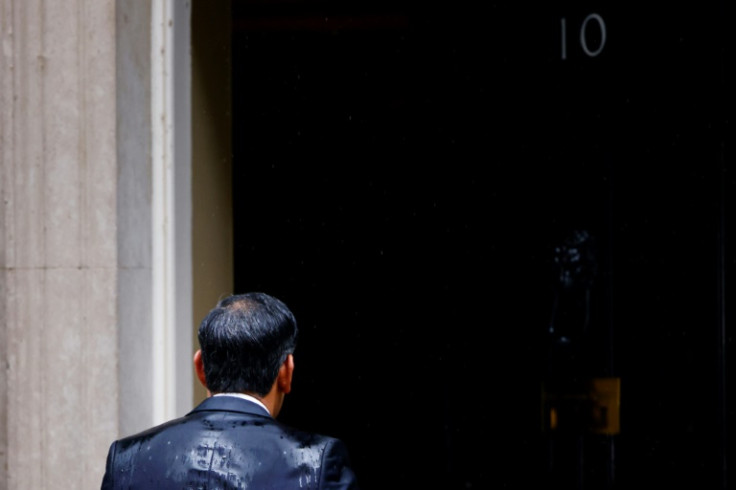UK Leaders Clash In TV Debate As Farage Enters Election Fray

The leaders of Britain's two main political parties faced off in the first live TV debate of the general election campaign on Tuesday, a month before voters go to the polls and with predictions of a record win for the main opposition Labour party.
Conservative Prime Minister Rishi Sunak said he had "a clear plan for a more secure future" while Labour leader Keir Starmer said he wanted the country's backing on July 4 to "change our country".
"Beyond raising your taxes and raiding your pensions, no one knows what Labour would actually do," said a combative Sunak, as he fought to try to inject life into his party's faltering campaign.
Starmer -- whose huge poll lead meant he had more to lose from the debate -- insisted the election was a choice between "more of the chaos and division we've seen for the last 14 years or turning the page and rebuilding with Labour".
Both men were told repeatedly not to speak over each other and asked to lower their voices as they clashed over issues ranging from immigration and education to health and the transition to net-zero energy -- but neither outlined any new plans.
The run-up to the clash was overshadowed by Nigel Farage, whose return to the political frontline could spell even more bad news for the Tories.
Farage, whose once fringe idea of getting Britain out of the European Union eventually became mainstream, is standing as a candidate for his anti-immigration Reform UK party.
But that risks splitting the right-wing vote, handing Labour a return to power for the first time since 2010, potentially with a record majority if polling predictions play out at the ballot box.
Labour has enjoyed double-digit poll leads for 18 months and that has held firm nearly two weeks into the campaign, with Britons appearing weary of the Conservatives after almost a decade and a half in power.
Sunak, 44, announced the election on May 22, calling it six months earlier than required and making an inauspicious start in a widely mocked rain-sodden speech outside 10 Downing Street.
He has made a series of headline-grabbing promises in a bid to appease right-wingers who want him to be tougher on immigration and law and order.
They include vowing to introduce a form of national service for 18-year-olds, restrict taxes on pensioners' incomes and amend Britain's equality law so that biological sex alone would determine who could use single-sex spaces.
On Tuesday, the party pledged to impose an unspecified annual cap on immigration.
Starmer, 61, has been playing it much safer, trying to reassure voters that Labour will responsibly marshal the economy and Britain's defence as it seeks to protect its lead.
A YouGov survey Monday -- using the same nationwide modelling that correctly predicted the 2017 and 2019 general elections -- showed Labour on track to win 422 of the 650 seats in parliament.
That would give the centre-left party its best-ever election result, and hand the Conservatives its worst defeat in more than a century, with a host of senior ministers ousted.
Another poll from More in Common using similar modelling suggested a Labour majority of 114.
Both were carried out before Farage announced his decision to run for Reform, which he first set up as the Brexit Party, and to return as its leader, allowing him to take part in election debates.
The move came less than two weeks after the former member of the European Parliament -- who has failed seven times to become a British MP -- said he would not stand.
Farage, once dubbed "Mr Brexit" by his close ally Donald Trump, however has his sights set on more than just a seat in the UK parliament as the new member for Clacton in eastern England.
Not everyone appeared to back his tub-thumping man-of-the-people rhetoric. As he emerged from a pub, he was doused in what appeared to be banana milkshake.
A 25-year-old woman was later arrested on suspicion of assault.
Earlier Farage readily admitted wanting to exploit any Tory ideological infighting after the election.
"I don't want to join the Conservative party, I think the better thing to do would be to take it over," Farage told broadcaster ITV.



© Copyright AFP 2025. All rights reserved.





















